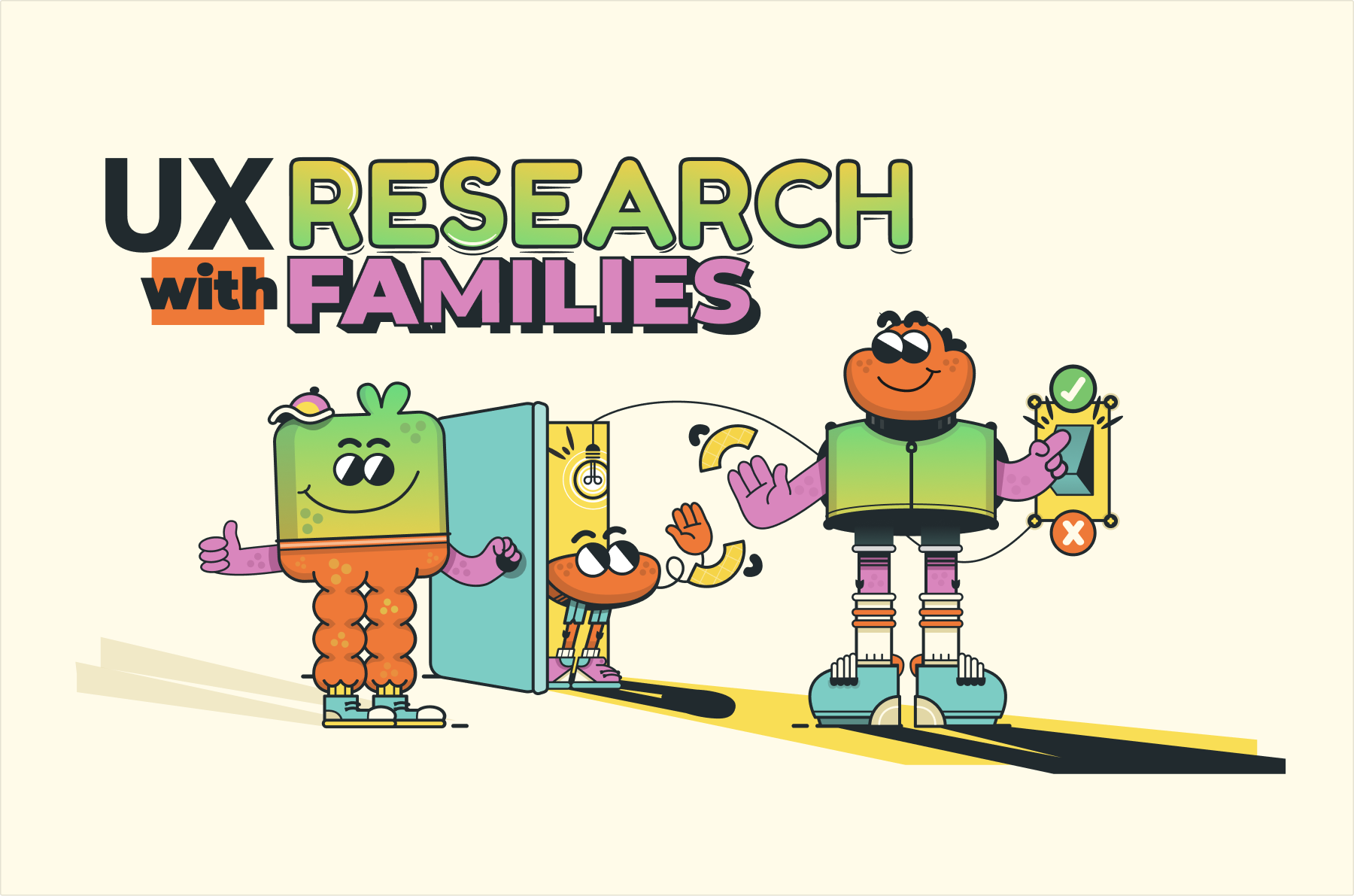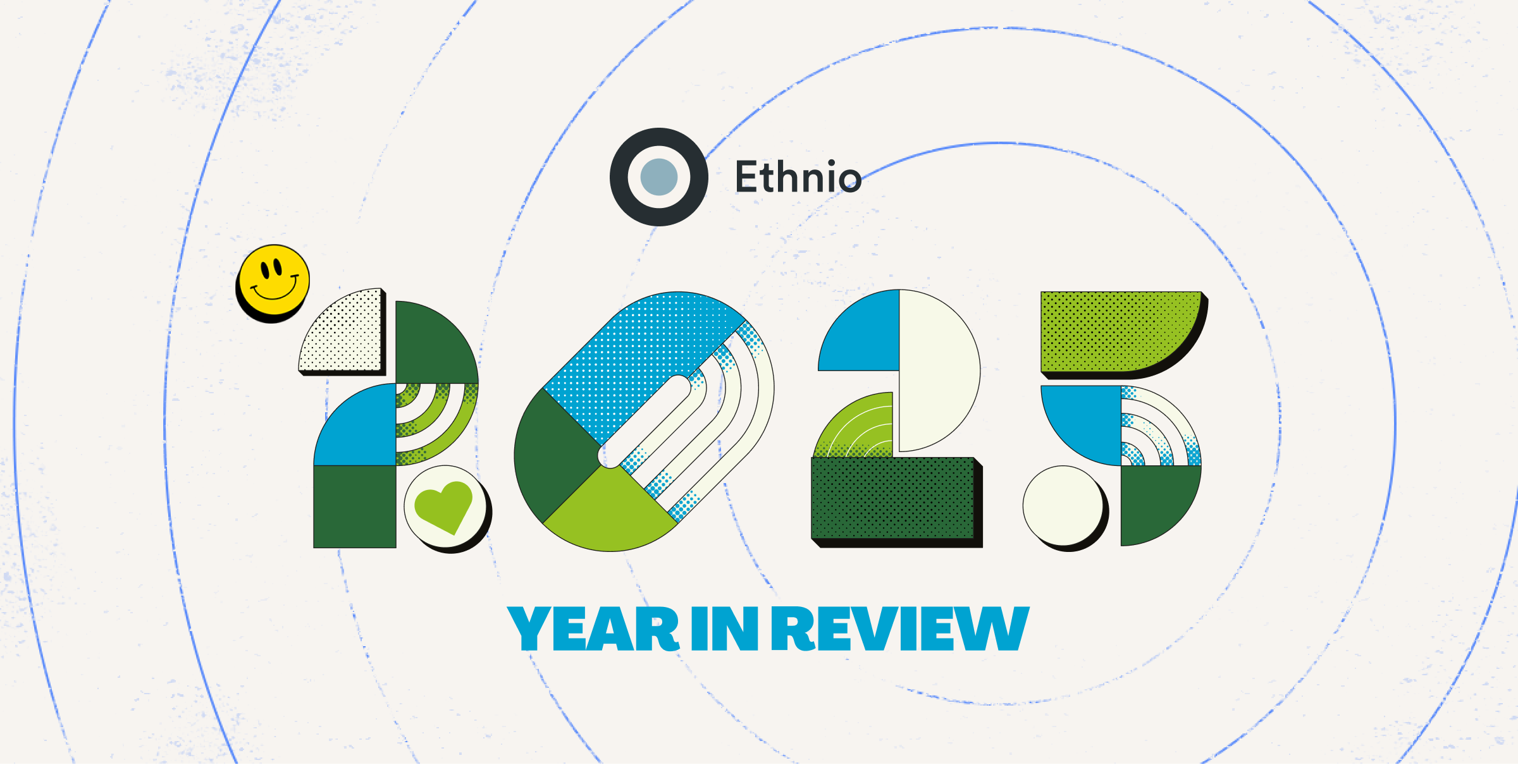If you're reading this, you're probably the hero tasked with participant management. High five! 👏
This includes tasks like tracking information, scheduling sessions, and managing incentives. But we know it goes far beyond logistics. It involves strategy.
You understand the value of recruiting the right participants and building strong relationships with the people who make your research possible. Impactful UXR hinges on a recruitment and engagement strategy that yields impactful insights. This guide equips you with the knowledge and tools to strategize, streamline, and scale your research.
Why your participant management strategy matters
No matter what systems or tools you use, the way you find ideal participants for research is your participant management strategy. If your researchers are happy with the quality of participants in general, it helps your organization build better products. As a bonus, you can also build trust with participants, and to save the more important part for last, you an help ensure ethical practices throughout the research lifecycle.
Core principles in UXR
Ethical participant management safeguards participants' rights, privacy, and well-being throughout the research process. We achieve this by obtaining informed consent, maintaining confidentiality, and respecting their autonomy.
The core principles include:
✅ Voluntary participation
✅ Informed consent
✅ Conflict of interests
✅ Confidentiality
✅ Minimizing risks
✅ Fair treatment and equity
✅ Results communication
In the pursuit of insights and data, ensuring user privacy, informed consent, and responsible data handling are non-negotiable elements.
Prioritizing these core principles empowers three key goals:
✨ High-quality research
Ethical practices ensure unbiased data collection and analysis, leading to more reliable results.
✨ Building trust
Respectful treatment of participants builds trust, encouraging honest feedback and future participation.
✨ Protecting reputation
Ethical research adheres to legal and industry standards, safeguarding your organization's reputation.
Participants, on the other hand, benefit from:
💫 Increased trust and transparency in the research process.
💫 A sense of respect for their time and valuable insights.
💫 The knowledge that their participation is making a meaningful contribution.
Click here to learn how experts from Google to Duolingo tackle ethical participant management.
How to make it easier
Manual mangement and traditional methods – spreadsheets and email chains and the list goes on – quickly become bottlenecks for growing research teams. They lead to scalability issues, rising costs, declining data quality, frustrated participants, and missed deadlines.
That's why large orgs and leading startups are investing in participant management software.
To navigate the high demand of research at Udemy, our focus has been on efficiency and growth – which means we needed the right research tools to enable us to both scale our operations and maintain high-quality outputs.
Investing in effective participant management allows you to recruit participants faster via panels, schedule sessions quicker, streamline communication, manage incentives efficiently and implement ethical practices. Teams benefit from well-organized data, engaged participants, and the ability to conduct longitudinal studies. This frees your team to focus on conducting insightful research and analyzing data, not wrestling with logistics.
The power of research panels
The panel is the most crucial component of a research participant management strategy.
Imagine having a readily available pool of qualified participants who've opted-in for user research. These groups are pre-screened to meet specific criteria, ensuring an ideal fit for your studies.
Why panels are effective?
Optimizing your participant management strategy with a panel can be a game-changer, not to mention, it's generally more cost-effective for large teams with ongoing research needs. You avoid high external firm fees and eliminate the time-consuming in-house recruitment process like DIY research or outsourcing to firms.
Chris Pokrzywa, a Lead UX Designer and Design Manager, wanted to transform his 300+ person department to prioritize user research in the design process. However, he faced a significant challenge - finding participants, especially those with specific needs like chronic disease management.
I need to talk to people who have experience managing chronic disease. Where do I even begin looking? I'm so busy, I simply don't have the time to coordinate all of the logistics for a user test right now.
Research panels address these challenges by providing several key benefits:
▪️ A readily available pool of qualified participants.
▪️ Panel members are often more familiar with the research process, leading to higher engagement, response rates, and potential participation in follow-up studies.
▪️ The screening process helps mitigate bias and ensures participants meet specific demographic and experience requirements.
▪️ Development of strong participant profiles for longitudinal studies..
▪️ Cost-effectiveness compared to traditional methods.
Who manages panels?
The responsibility for research panel management can vary based on your team structure and size. That being said, we’ve seen examples where participant management thrives when there is a dedicated Research Operations (ReOps) lead for teams with growing research needs.
The benefits of a ReOps team managing panels are optimizing processes and troubleshooting issues, best practices across research projects for better data quality, panel recruitment, priority on participant experience, and compliance to ethical and legal standards.
Is a panel right for you?
Consider these factors:
◼Research Focus
Do you conduct frequent studies on specific user segments or niche topics? Panels excel at providing a ready pool for ongoing research.
◼Project Duration
Are your research initiatives long-term, requiring access to the same user group over time? Panels are ideal for tracking trends and user behavior changes within a consistent participant base.
◼Resources
Building and maintaining a panel requires dedicated effort. Evaluate your team's capacity for ongoing recruitment, participant engagement, and potentially specialized management tools.
Panel types
The ideal panel type depends on your research goals:
◼Temporary Panels
Designed for focused research projects with a defined duration. Perfect for gathering targeted insights on specific topics or product iterations. These panels require less ongoing effort but necessitate new recruitment for each project.
◼Evergreen Panels
Long-term panels ideal for tracking user behavior and sentiment over extended periods. They offer a readily available pool of participants but require more resources for engagement and refreshment to avoid participant fatigue and bias.
Panel size and communication
◼Panel Size
Start by considering your research goals and session frequency. Panels can range from 30-500 participants, but the optimal size depends on your specific needs.
◼Communication
Maintaining regular communication (e.g., surveys, updates) with your panel is crucial. Panel management tools, like Ethnio, can facilitate communication with features like personalized email templates and automated outreach.
Building a thriving research panel
Panel building is a process that should prioritize maintaining current participant profiles and regularly introducing new perspectives into your organization’s research process.
◼Determine Panelist Criteria
Identify the ideal characteristics of your research participants.
◼Set a Timeline
Establish a timeframe for maintaining and utilizing the panel (consider panel type - temporary or evergreen).
◼Target Panel Size
This depends on research goals and session frequency.
◼Panel Management Processes
Define clear procedures and what tools will you use for communication, engagement, and data management.
◼Participant Personas
Consider developing personas to visualize ideal panel members and guide recruitment efforts.
Once you’ve answered these questions, you can begin recruiting.
Recruiting
Once your plan is clear, begin recruiting participants. This involves activities like initial outreach, screening, obtaining consent, scheduling, and offering thank-you's and incentives. Always obtain informed consent from each panelist before involving them in any research activities.
Managing your panel
Once users have joined your panel, you begin your panel management process. Effective panel management will accomplish two things:
🌟Data Hygiene
🌟Enagaged participants
By doing these things, your research team can leverage the power of a research panel to conduct insightful studies and gain valuable user insights, leading to better products and a more competitive edge for your organization.
Click here for additional resources and downloadable content to support effective panel management and tracking.
Common pitfalls in panel management (and how to conquer them)
Maintaining a healthy and engaged panel requires addressing potential challenges. Watch out for these:
Pitfall #1: Incomplete or inaccurate participant data
Collecting the wrong information from participants can lead to biased or unusable data. This can have a significant impact on the validity and reliability of your research findings.
Do this instead:
✅ During recruitment, use targeted surveys to gather essential demographics and behavioral data. Upfront clarity ensures you have the right information from the start.
✅ Frame survey questions clearly to minimize misinterpretation. Leave no room for confusion!
✅ Implement quality checks to identify and correct inaccurate or missing information. Clean data ensures your research findings are reliable and lead to better product decisions.
Pitfall #2: Lack of clear communication and expectations
Ever felt confused about a project's deadlines or unsure of what's expected? The same can happen to participants. Without clear communication, they may become frustrated, disengaged, or even drop out of the panel entirely. This can significantly impact your research efforts.
Do this instead:
✅Outline clear expectations, deadlines, and compensation structures for participating in research.
✅Keep participants informed about upcoming studies, research goals, and the value of their contributions.
✅Provide multiple ways for participants to ask questions and offer feedback, fostering a collaborative environment. When participants feel heard, they're more likely to stay engaged.
Pitfall #3: Unscalable and non-democratized processes
If your recruitment, screening, and data collection processes aren't scalable, they can become bottlenecks as your panel grows. Non-democratized processes, where only a few researchers control access to participants, can hinder collaboration and slow down research efforts.
Do this instead:
✅Invest in participant management software
✅Develop clear criteria and procedures for identifying and recruiting qualified participants.
✅Democratize access with clear guidelines and permissions for access to engage with panel members.
Pitfall #4: Communication silos and lack of engagement
Insufficient communication with participants can lead to a feeling of disconnect and a lack of understanding about the value of their contributions. This can result in lower participation rates and loss of interest in long term participation.
Do this instead:
✅Regular updates
✅Incentives and recognition
✅Provide ways for participants to share feedback on their experience and express their opinions.
Embrace these recs to propel your research forward, foster meaningful relationships with your participants, and maintain a competitive edge in your industry.
Now it’s your turn…
As you embark on optimizing your participant management strategy, remember each interaction with your participants is an opportunity to refine your approach, deepen your understanding, and ultimately, shape the future of your products or services. Embrace these practices, leverage the right tools, and propel your research forward.
Your all-in-one tool
Ethnio is designed to streamline every step of the participant management process, with features that address ethical data collection, automates tasks, and empowers large teams with advanced functionalities.
Unlike traditional research panels, Ethnio prioritizes quality over quantity. Our platform focuses on recruiting participants who genuinely care about your product or service, leading to more meaningful research outcomes.



